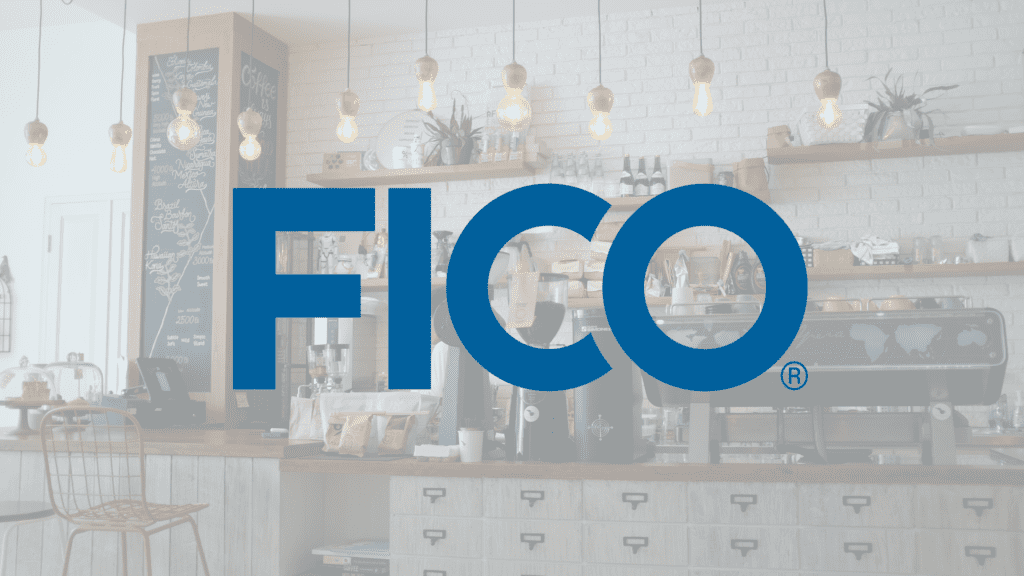🎉 Tillful is now part of Nav! Get your business credit score at Nav
Have you heard about the FICO Small Business Scoring Service (SBSS)? Like most business credit scores, the SBSS helps lenders and service providers understand the level of credit risk that businesses present. However, unlike most, FICO pulls financial data from the other major credit bureaus—collecting both personal and business credit history data under their business credit score. Here’s a closer look at FICO SBSS scores, why they matter, and how you can improve yours.
What is an SBSS score?
The Fair Isaac Corporation (FICO) provides a Small Business Scoring Service (SBSS) which aims to help lenders and other institutions quickly assess the risk of U.S. small business credit applicants. In other words, if you’re a business owner applying for business financing products, lenders may check your FICO SBSS score to assess your creditworthiness.
Why does the SBSS score matter?
Many lenders, including the U.S. Small Business Administration (SBA), use SBSS scores to assess the creditworthiness of small business borrowers. The latest scoring model can be used to screen borrowers for term loans, lines of credit, and commercial cards up to $1 million. As a result, if you’re a business owner looking to get financing, your SBSS may play a big role in whether you get approved or not. Further, it can influence the interest rates, fees, and terms offered to you.
What is a good FICO SBSS score?
FICO’s SBSS scores range from 0 to 300 and a score of at least 140 is considered good. The SBA uses the SBSS scores to pre-screen applicants for its 7(a) loans and requires the following scores for loan approvals:
- An SBSS score of 140 to 160+, or;
- A personal FICO score of 620 to 640.
If your business doesn’t yet have business credit, it’s still possible to have an SBSS score. However, it will be largely based on your personal credit data, which means your personal credit score must be excellent to have a good SBSS score.
How is the FICO SBSS Credit Score Calculated?
While a detailed description of how FICO SBSS credit scores are calculated isn’t available, FICO has released a list of factors it needs to score a business. It includes:
- Personal credit data from a business owner’s TransUnion, Experian, or Equifax credit report.
- Business bureau data from one of the three major business credit bureaus (Experian, Equifax, or Dun & Bradstreet).
- Customer financial information
- Customer application information
FICO states that the only mandatory piece of information is a business owner’s personal credit file from one of the main consumer reporting agencies. The other data is marked as optional.
So, unlike the credit reports from D&B, Experian, and Equifax, FICO’s SBSS factors in both business and personal credit information, as well as information about the business and its finances.
To learn more about what goes into the SBSS credit score, we looked at the information being reported to FICO by the consumer arm of Experian, and the business reporting agency, D&B.
Dun & Bradstreet business credit factors
Dun & Bradstreet has a long list of information that it sends to FICO SBSS upon request, including:
- Commercial credit class score: A one-digit number from 0 to 5 that indicates the likelihood of delinquent payments in the upcoming 12 months.
- Commercial credit raw score: A score from 1 to 100 that predicts the likelihood of a business paying bills 90+ days late in the next 12 months.
- Credit score national percentage: A score from 1 to 100 showing how a business’s commercial credit score ranks in relation to other businesses.
- Employee quantity: The number of people employed by the organization.
- Overall trend text: A description of the direction that a business and its profits are trending.
- D&B rating: D&B’s proprietary indicator that considers a company’s financial information, age, payments, and other factors to give it a rating.
- Composite PAYDEX score: An average of the last year’s PAYDEX scores (a minimum of six is required). And more.
Experian personal credit factors
Now for a look at the consumer credit side. Experian includes the following information on its credit profiles:
- Open accounts: The personal credit accounts an individual has open and active under their name along with the account balances, payment history, and credit utilization (if applicable) for each account.
- Collections: Any accounts an individual has defaulted on that have been sent to a collections agency, along with the balance, payment history, and age of each account.
- Inquiries: A list of all of the companies that an individual has allowed to process a hard inquiry on their credit file along with the inquiry dates.
- Public records: Any public records such as bankruptcies or liens.
All of the above are examples of information that may be pulled and considered when FICO is scoring your small business through its SBSS. However, this is by no means an exhaustive list and the information pulled can vary depending on which credit bureau FICO contacts.
How do I improve my FICO SBSS score?
If you want to improve your FICO SBSS score, you’ll need to build credit for your business, yourself, and (possibly) other owners of your business.
How to build business credit
Building business credit can be a bit confusing. Many small business owners aren’t sure where to start or how the business credit bureaus work. But not to worry, here are the main things you’ll need to do.
1. Get your business set up
The first step is to ensure your business is registered with the IRS and has an Employer Identification Number (EIN). Then, you’ll want to open up a business bank account and set up a business phone number.
2. Register
Next, you can contact Experian and Dun & Bradstreet to establish a credit file (you can also establish a file with Experian in the Tillful App). With D&B, the process will involve registering for a D-U-N-S number. Equifax doesn’t allow businesses to register, but a profile will be created for your business once credit accounts have been reported.
3. Open your first credit account
Then, comes the process of building credit. How do you get a loan or credit card for your business? A good way to break in and establish your first credit account is to open a secured business credit card, like the Tillful Card, that reports to one or more of the business credit bureaus. You’ll put down a deposit and that will become your credit line. Then, you can begin building a positive credit record by using the card, paying it off on time, and keeping your balance below 30%.
4. Keep building
Once the card begins to build your credit, you can look for other credit account opportunities such as credit lines, loans, and vendor financing. The key is to gradually build a profile with various credit accounts that are all managed well (on-time payments, low credit utilization, paid in full as agreed).
How to improve personal credit
Like business credit, building a strong personal credit history also relies on managing a variety of credit accounts responsibly. You’ll want to have a mix of revolving and installment accounts and ensure you pay them all on time.
If your personal credit is in bad shape, review all of your accounts to see what’s bringing your score down. A common mistake that can cause a drastic drop in your credit scores is running up your credit card balances. Credit utilization accounts for 30% of your credit score so paying down balances can be highly impactful. Most recommend keeping your balances below 30%, but the lower the better.
If you’ve missed payments in the past or have had accounts go to collections, you can contest them, settle them, or wait for them to drop off your report. Most legitimate records stay on consumer credit reports for seven years. However, hard inquiries drop off after just two years. Lastly, account age is also a factor so the more time that passes, the better.
Frequently asked questions about FICO SBSS scores
If you still have questions about SBSS scores, here’s a look at the answers to some common questions.
How is the FICO SBSS score different from other business credit scores?
Each business credit bureau has its own method of scoring a business’s creditworthiness. The FICO SBSS uses information from all of the other credit bureaus (business and consumer) along with other information to assess the risk of small businesses.
What does SBSS mean?
SBSS stands for Small Business Scoring Service. It’s a program FICO offers to organizations that need or want to assess the creditworthiness of small businesses and their owners.
How do I get an SBSS score?
When a lender or other organization signs up for the FICO SBSS, it submits requests to FICO to score businesses. If you apply for a loan with a company that uses the FICO SBSS, that company will then request that your business is scored. You currently can’t directly request your own SBSS score from FICO.
Is a certain SBSS score required for SBA loans?
SBA loans do require applicants to have at least a minimum SBSS score. For example, the SBA 7(a) loans require an SBSS score of at least 140, but more often at least 155 to 160.
What is the FICO credit score range for the SBSS?
FICO SBSS scores range from 0 to 300.
How is the SBSS score different from the Tillful Score?
The Tillful Score is a free business credit score that you can request directly from Tillful. It’s based on real-time transaction data from linked bank and credit card accounts. By tracking credit utilization trends, cash flow patterns, payment delinquencies, and more, it provides a holistic snapshot of your business’s financial health. While the SBSS score is used by lenders and other companies to determine the creditworthiness of businesses, the Tillful Score helps business owners keep tabs on their own creditworthiness and financial health.
Read more about small business credit scoring
Want to learn more about business credit and how it works? Check out these guides to the three main business credit bureaus:


